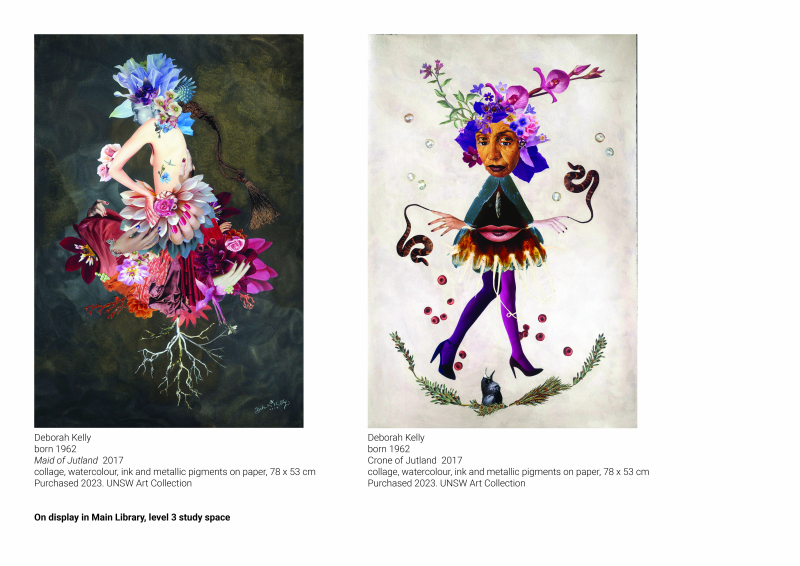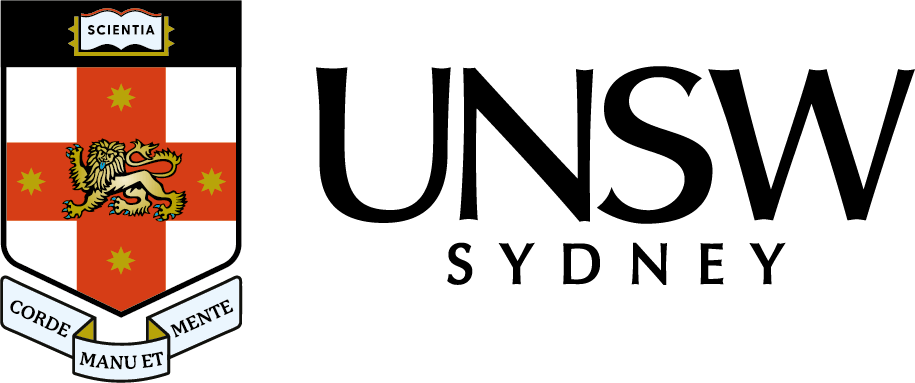Art Collection Writing Prize 2023
For the second time, the Art Unit offered a prize for student writing relating to UNSW's Art Collection, awarded at the annual UNSW Culture Awards on Thursday 9 November.
This opportunity is open to all current UNSW students, requiring submission of a short, original creative response to one of three specified works of art selected from the UNSW Art Collection.
Three works were selected for students to engage with and respond to through a piece of writing in any genre, and submissions included essays, poems, and short stories of various types. The winner work was considered to be the most original, excellent, and engaging response to the work of art.

Art Collection Writing Prize 2023 - the winner
Oliver Clarke studies a Bachelor of Arts with a Major in English at UNSW. He is the author of 'Flare and Falter: A History of Australian Cinema' and has had articles published with Onya Magazine, The AIM Network and FIB.
The adjudication panel statement for Oliver's submission:
Oliver Clarke's poem, "Millicent at the Protest", is a response to Deborah Kelly's Maid of Jutland, and, Crone of Jutland. As with Kelly's work, which employ collage, ink and metallic pigments on paper, so does the poem harness several different techniques and tones. The poem knows its history: we take Millicent to be Millicent Fawcett, writer and activist, and a leader of the Suffragettes. Secondly, we take it that "the protest" of the title is against war - the Battle of Jutland was the largest naval battle of WW1. The poem is asking us to consider the connections between art and writing and politics, and the efficacy of protest and activism more generally. Unfortunately, such questions always seem timely, including in our present moment. But all of this makes the poem seem heavy and overly earnest, when in fact it isn't - like the paintings, its form is playful and inventive. It takes liberties, as artists and poets tend to do. It is deeply satirical.
From reading Oliver’s work you will get a sense of the poem's serious intent and its playfulness, and you can hear that it's addressing, even challenging, a contemporary audience. It enjoys being a poem - associative, pointed, provocative. It tumbles over itself and almost stops making sense, but doesn't. We didn't find ourselves in agreement with everything the poem said, but we enjoyed that its ideas and composition made us think and feel. We were engaged because it was - from the painting to the poem, and back again, and now to all of us. It's a wonderful poem, and a fitting winner of a wonderful prize.
Millicent At The Protest
Maid Millicent is militant.
She’s stomping on the snakes.
The pigs are stomping on her feet at the protest
And the men aren’t shouting loud enough.
She tells them to punch a protestor.
She hides her face from snakes.
She’s Maid Mary.
She’s Maid Millicent.
She submits to the young faux-flowery men
And really loves their snakes,
But hates it when they leave.
They have no because.
What’s your because?
I’ve never had one.
I’m lost.
I’m militant.
I’m a visiting politician
Hanging flowers around my neck.
I’m innocent,
I’m a politician visiting Jutland,
Visiting both Danish and German areas
Without prejudice,
Without biases.
What’s the militaries purpose?
Maid Millicent was so excited for the protest today,
But she woke up hungover,
And it’s raining outside,
So the militarism is pointless.
What’s the protest’s purpose
When the protestors rate each other
On the number of posts they’ve posted
Captioned; “I hate Capitalism and love to protest!”
A bruise to the head of a snake is fatal
And Mary’s wearing heels.
By conquering as many snakes as possible
Millicent finds her purpose,
Bruising and kissing the heads of the politicians
She meets after the protest,
Going Crone like her mother did,
Her Mary,
And smiling,
And promising to visit Jutland
In the summer to study.
I’m like a politician
Because I’m boring,
And because I’m scared of being hurt.
I’m like Mary.
She’s Crone Millicent,
She hates the depths of our traditions
But still falls head first into them.
She is nothing if she is not hurt.
After the protest, Millicent is a Catholic woman,
Stomping down on red snakes.
After confession, I’m a politician,
Stomping on my own snake.
© Oliver Clarke, 2023
Who can I contact if I have more questions? Please email us at culture@unsw.edu.au

